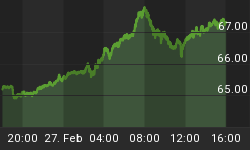There are increasing reports of repatriation of manufacturing to the U.S. from China and other low cost producer nations where product transportation costs are high, and where in some cases for 'high end products' (some furniture products for example) quality is seen to be better for 'made in America' products. That said:
Be somewhat skeptical of media reports (verbal or written) that proclaim 'manufacturing returns to America' as if that return, now a few drops of rain dropping from overcast skies, is going to become a deluge any time soon.
The big deal at a high level is not 'manufacturing returning to America'. The big deal is 'manufacturing jobs returning to America' if America is going to have any chance of reverting to some semblance of its former 'economic powerhouse' self.
In a nutshell, I believe:
-
some manufacturing indeed will come back to America. This largely will occur where the products produced are high end, comparatively expensive consumer products (for example, solid wood furniture made from North American hardwoods) and industrial and construction equipment products;
-
manufacture of the products manufactured in America and other developed countries with high hourly labour rates will have less labour hour content than they previously had as a result of technology enhanced manufacturing;
-
for the most part the products 'returned to the U.S. for manufacture' will be niche products that will be purchased by a small percentage of the U.S. population that can afford them, not mass produced products;
-
products dependant on hand assembly will not be manufactured in the developed countries, unless:
-
future transportation costs become astronomic,
-
skilled and unskilled labour rates drop in the developed countries very significantly from current levels,
-
some combination of those two things takes place, or
-
there is a major military confrontation that changes all the economic rules overnight; and,
-
-
absent those things described in the previous point, unemployment in the United States and other struggling developed economies is highly unlikely to be resolved by repatriation of manufacturing jobs. That leaves America and those other developed countries an undesirable place.
Everyone in American and all developed countries in economic difficulty want to believe things at some point will revert to 'the way things were'. The closest they likely are going to come to what in retrospect were the 'great times of the 1960's through 2007 is to listen to 'oldies but goodies' on their electronic devices.
Topical Reference: As China costs rise, technology lures factories home, from Reuters, Scott Malone and Ernest Scheyder, July 24, 2012 - reading time 3 minutes.















